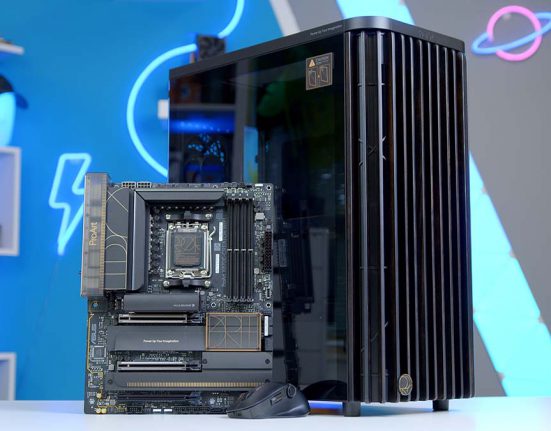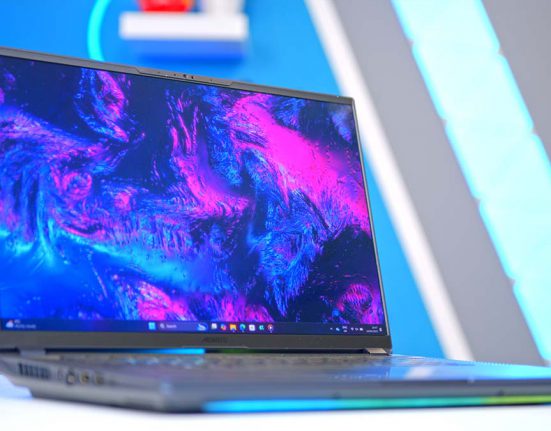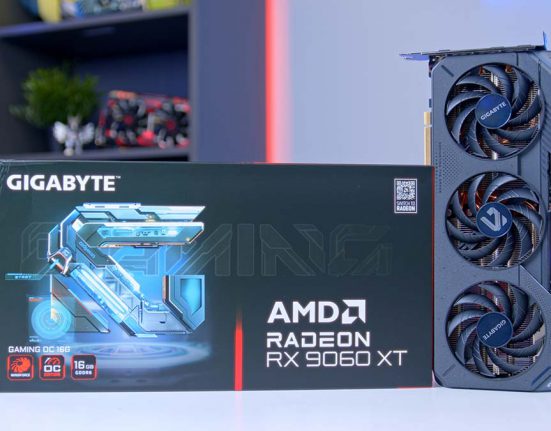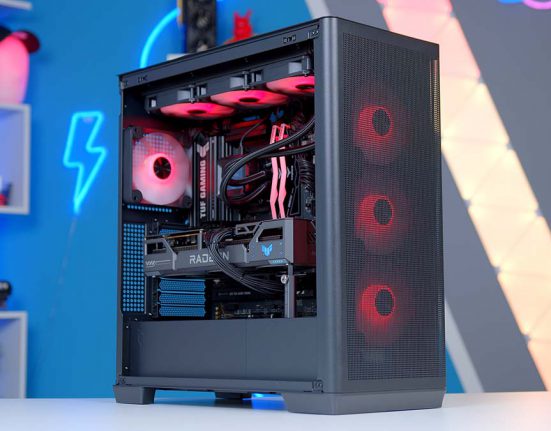The NVIDIA GeForce RTX 5060 Ti has hit the market about a month after the launch of the somewhat controversial RTX 5070. NVIDIA’s latest generation of cards hasn’t been received with overwhelming positivity, especially with AMD hot on their heels with cheaper GPUs that offer similar performance. However, the arrival of the RTX 5060 Ti marks a potentially positive introduction to the 60-class of cards, with the RTX 5060 Ti seeing a decent price drop compared to the previous generation offerings.
However, we’ll leave the broader discussion about the RTX 5060 Ti for our dedicated review. This article is for all of the buyers looking for an excellent CPU to pair up with their brand-new RTX 5060 Ti. We’ve tested a range of awesome processors, picking out a select few that stand out as the best ones to buy for the RTX 5060 Ti. In this buyer’s guide, we’ll examine each option’s specs, performance, and pricing, providing an overview to help you determine which CPU is the right pick for you!
The Best CPUs for the RTX 5060 Ti
1. AMD Ryzen 5 9600
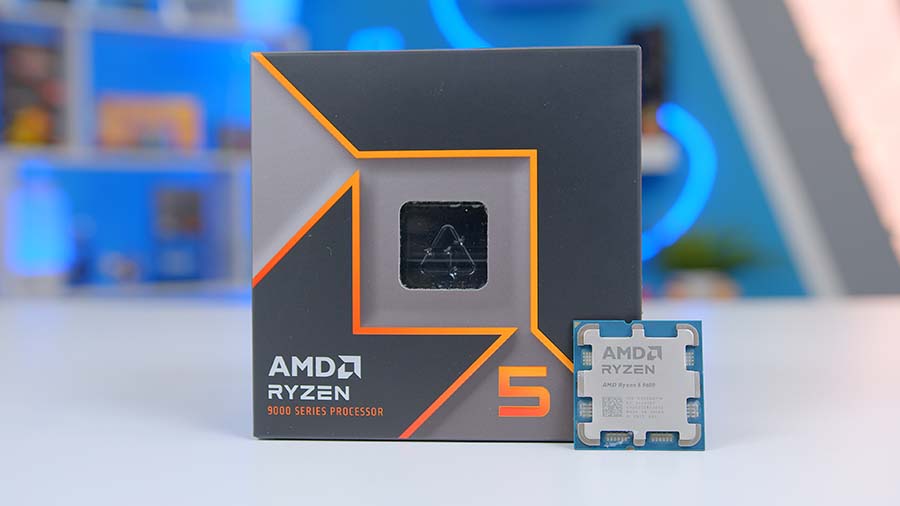
Our top pick in this roundup is the AMD Ryzen 5 9600. Released in Q1 of 2025, this is the Ryzen 9000 version of one of our favourite CPUs, the Ryzen 5 7600. The Ryzen 5 9600 improves everything we love about the Ryzen 5 7600, offering a better boost clock speed but stronger efficiency and the same power budget that made the Ryzen 5 7600 such an excellent CPU.
In terms of performance, the AMD Ryzen 5 9600 can handle 1080p up to 4K when paired with the right graphics card. This is all down to the CPU’s excellent 5.2GHz boost speed, which allows it to thrive in games and other intense workloads. The previous generation motherboard chipsets support the Ryzen 5 9600. You can easily upgrade to this option if you’ve already got a supporting board, saving you some money.
| Key Specs | AMD Ryzen 5 9600 |
|---|---|
| Core Count | 6 |
| Thread Count | 12 |
| Base Clock Speed | 3.8GHz |
| Boost Clock Speed | 5.2GHz |
| Max Cache | 38MB |
| Default TDP | 65W |
| CPU Socket | AM5 |
| Overclockable | No |
The Ryzen 5 9600 is similar in price to the Ryzen 5 9600X, with most retailers placing it around the $200 mark. At the time of writing, the price of this CPU could be better, but we will only see the Ryzen 5 9600 drop in price. Providing greater separation between overclocking and non-overclockable processors will further increase its value proposition for those on a budget.
The main weakness of this CPU is its multi-core performance. While the Ryzen 5 9600 can handle some lighter workstation tasks, its core count puts it at an inherent disadvantage against the Ryzen 7 and Ryzen 9 processors simply because it has fewer cores. However, its single-core performance in games is practically unrivalled at this price point.
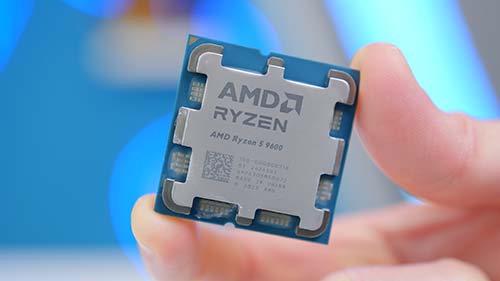
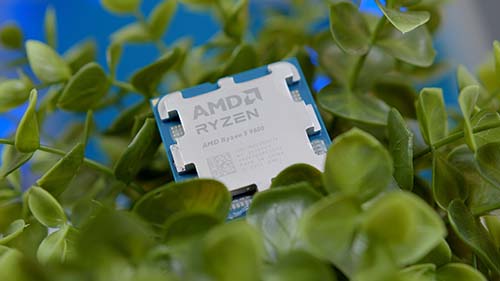
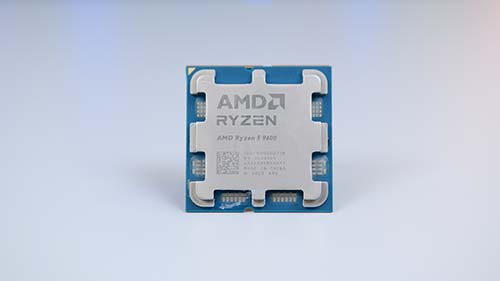
2. AMD Ryzen 5 9600X
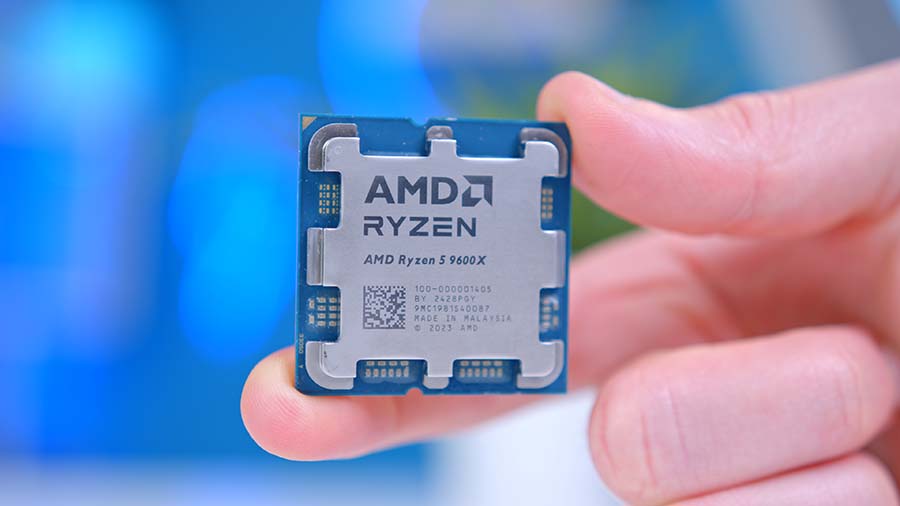
The AMD Ryzen 5 9600X is our second selection in this roundup and is the slightly more powerful sibling of the Ryzen 5 9600. This processor is one of our go-to options for gaming in 2025. Much like the Ryzen 5 9600, thanks to its low power budget, playing games at 1080p, 1440p, and 4K is not a problem for this CPU when paired with the right graphics card.
In terms of the specs, the Ryzen 5 9600X is very similar to the Ryzen 5 9600 on paper. The main pros of the 9600X are that it has a stronger boost clock speed that reaches up to 5.4GHz. Additionally, the Ryzen 5 9600X is unlocked for BCLK overclocking, which means the 5.4GHz speed can be pushed even further if you’re willing to tinker.
| Key Specs | AMD Ryzen 5 9600X |
|---|---|
| Core Count | 6 |
| Thread Count | 12 |
| Base Clock Speed | 3.9GHz |
| Boost Clock Speed | 5.4GHz |
| Max Cache | 38MB |
| Default TDP | 65W |
| CPU Socket | AM5 |
| Overclockable | Yes |
On the pricing front, the AMD Ryzen 5 9600X is currently available for around $200. Again, this is a very competitive offering, and the Ryzen 5 9600X will only likely fall further in price. For $200, this is an excellent CPU, and the addition of overclocking support is well worth it if you’re looking to maximise performance across the board.
With six cores and twelve threads, multi-core performance is one of this processor’s weaknesses. The Ryzen 5 9600X will be able to handle some intense tasks to a degree, like light video editing, but we’d generally recommend sticking to Ryzen 7 CPUs upwards if your PC is going to be more of a hybrid gaming/workstation rig.
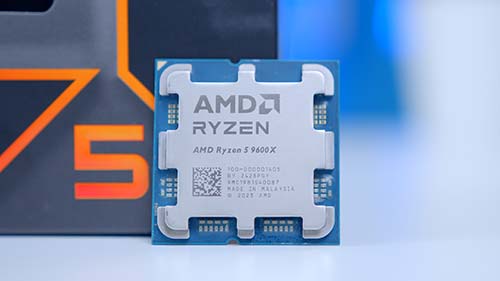
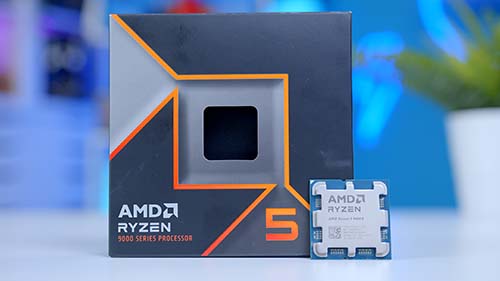
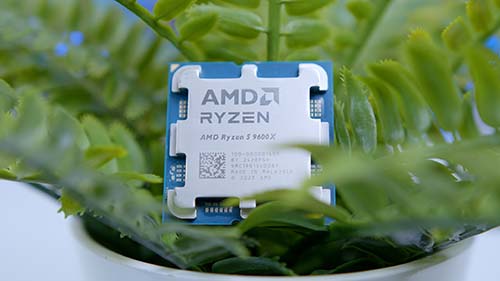
3. Intel Core Ultra 5 235
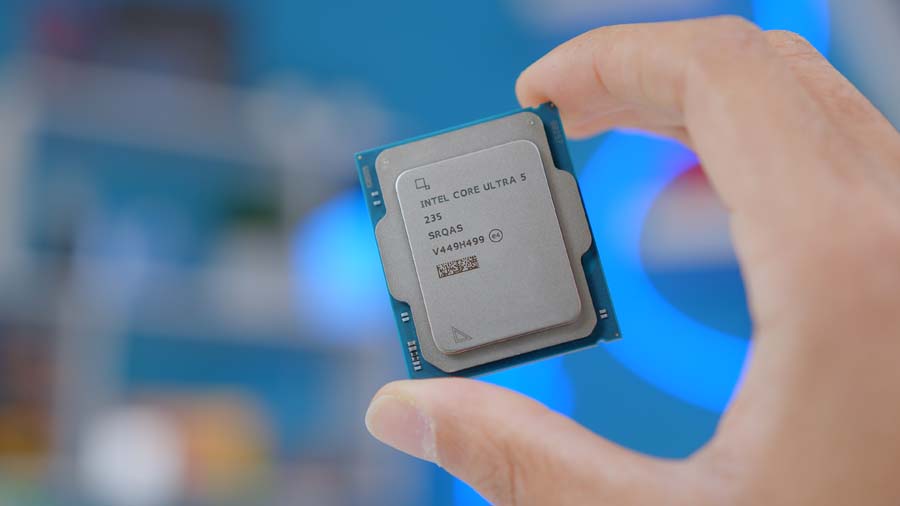
The Intel Core Ultra 5 235 is the last pick in this roundup and one of our first Intel recommendations since the launch of Core Ultra processors. It offers PC builders a more entry-level price point for a Core Ultra 5 CPU, with an MSRP of around $250 compared to the $300 MSRP of the 245K.
The Core Ultra 5 235 and 245K are similar on paper. Both have fourteen cores (six performance and eight efficiency). The Core Ultra 5 235 has a fairly low power budget of 65W, similar to what AMD offers across its Ryzen 5 range. Additionally, the Core Ultra 5 235 has a boost clock speed of 5GHz compared to the slightly better speed of 5.2GHz seen on the 245K.
| Key Specs | Intel Core Ultra 5 235 |
|---|---|
| Core Count | 14 |
| Thread Count | 14 |
| Base Clock Speed | 4.4GHz |
| Boost Clock Speed | 5GHz |
| Max Cache | 26MB |
| Default TDP | 65W |
| CPU Socket | LGA 1851 |
| Overclockable | No |
Regarding performance, the Core Ultra 5 235 can handle 1080p, 1440p, and 4K gaming. As the 235 shares similar specs to the 245K, metrics across the board are similar. When paired with the RTX 5060 Ti, you can expect solid framerates at 1440p, making it a solid pickup for a mid-range gaming PC.
The most notable caveat is the lack of overclocking support. The Core Ultra 5 235 is a non-overclockable CPU, which means you won’t be able to push the boost clock speed any higher than 5GHz. Additionally, it is more expensive than the Ryzen 5 9600/9600X, so it might not be the best pickup if you’re sticking to a tight budget.
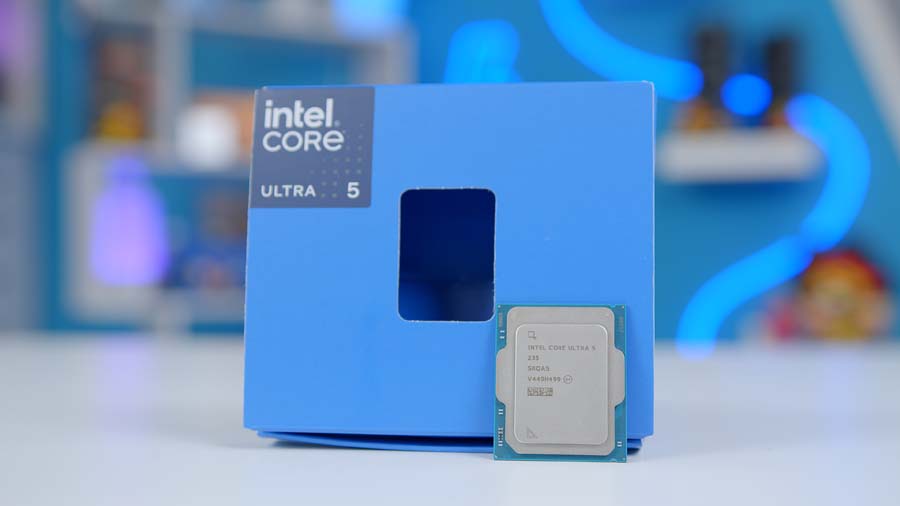
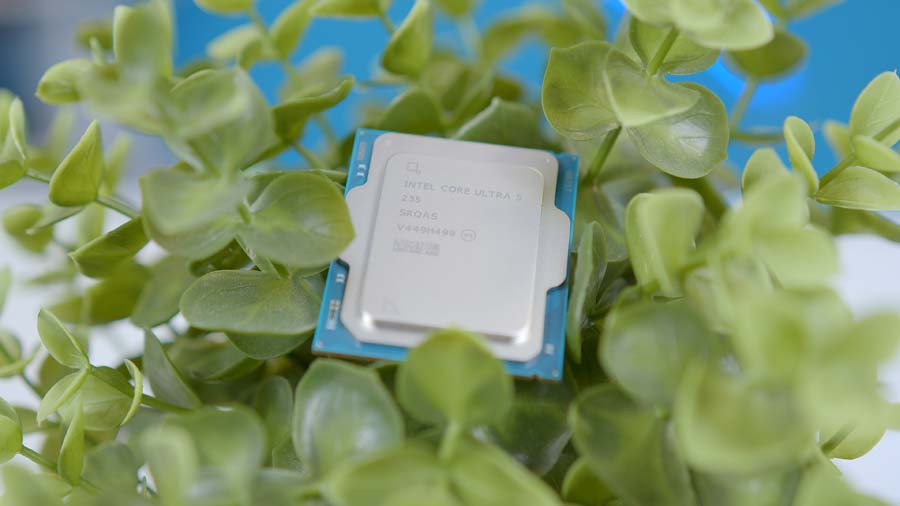
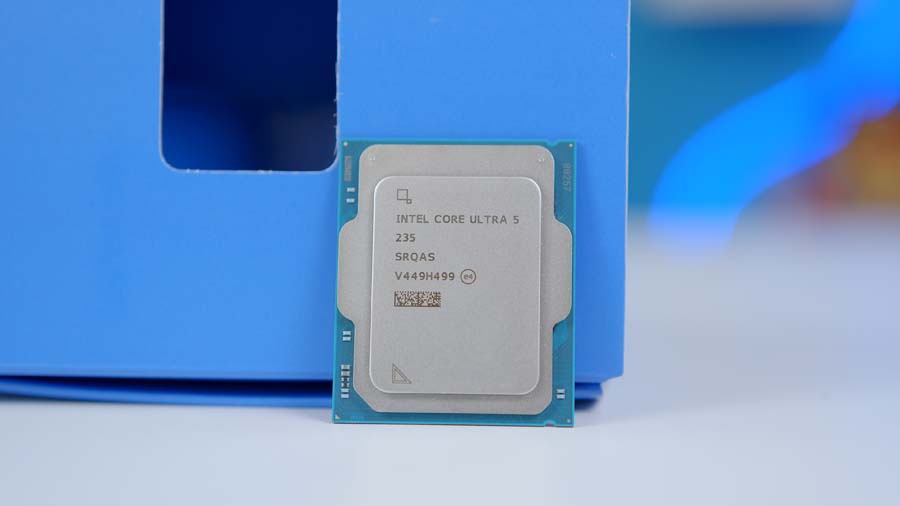
Frequently Asked Questions
Should I Worry About Future Proofing?
Future-proofing can be helpful if you’re worried about missing out on performance, but most modern CPUs can easily handle the requirements of modern games.
What Motherboard Do I Need?
For Intel Core Ultra, you can buy B860 or Z890 boards. For AMD, there’s a bit more choice. The previous generation B650 and X670 chipsets work, but you can also pick up a B850 or X870 board.
Are More CPU Cores Important for Gaming?
Generally speaking, most games will only use 2-4 cores at the maximum, so picking up a CPU with more than six cores won’t be needed for most gamers.


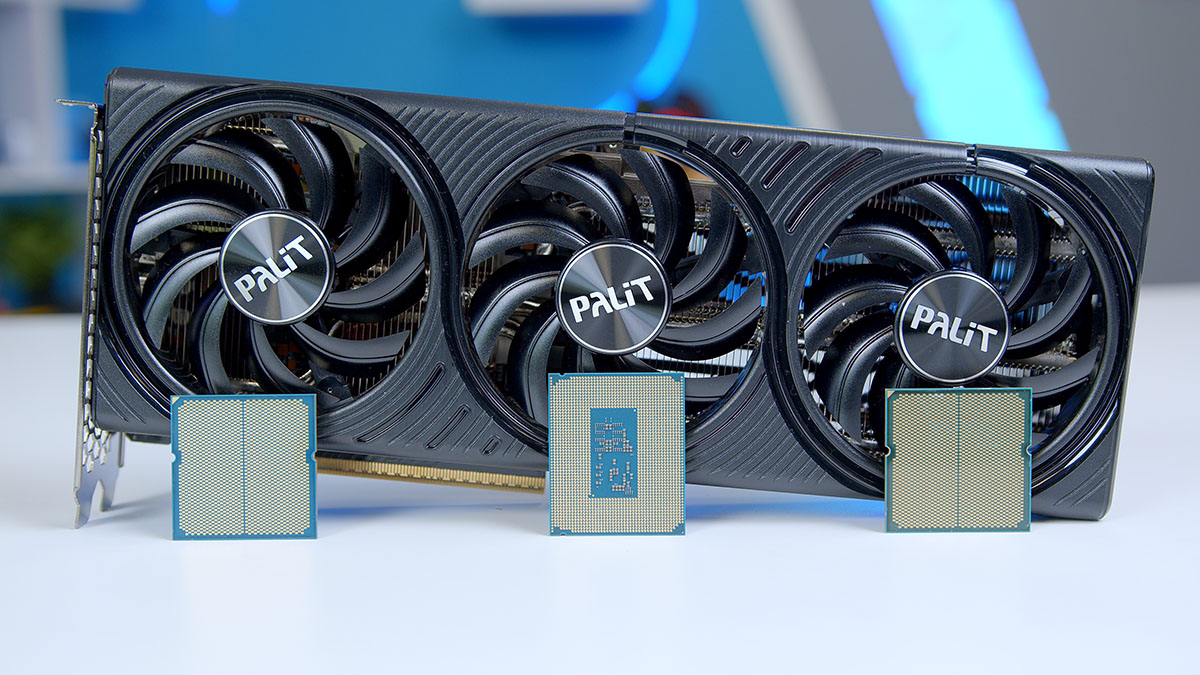

![FI_[DP043] Montech HS02 Pro + RTX 5080 - GeekaWhat](https://www.geekawhat.com/wp-content/uploads/2025/08/FI_DP043-Montech-HS02-Pro-RTX-5080-551x431.jpg)
![FI_[DM069]-Best 00 Gaming-PC-Build (1) - GeekaWhat FI_[DM069]-Best $1000 Gaming-PC-Build](https://www.geekawhat.com/wp-content/uploads/2025/08/FI_DM069-Best-1000-Gaming-PC-Build-1-551x431.jpg)
